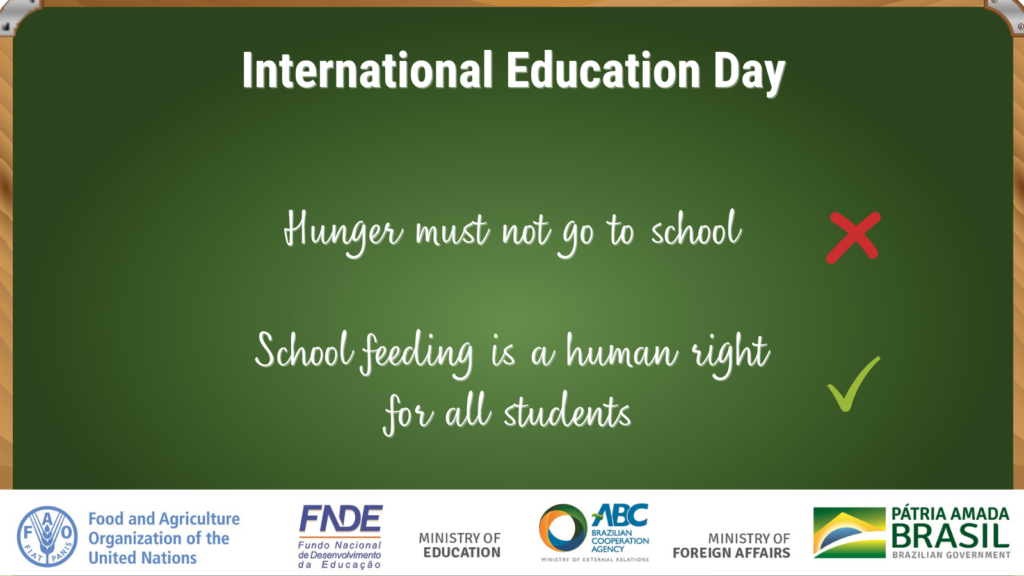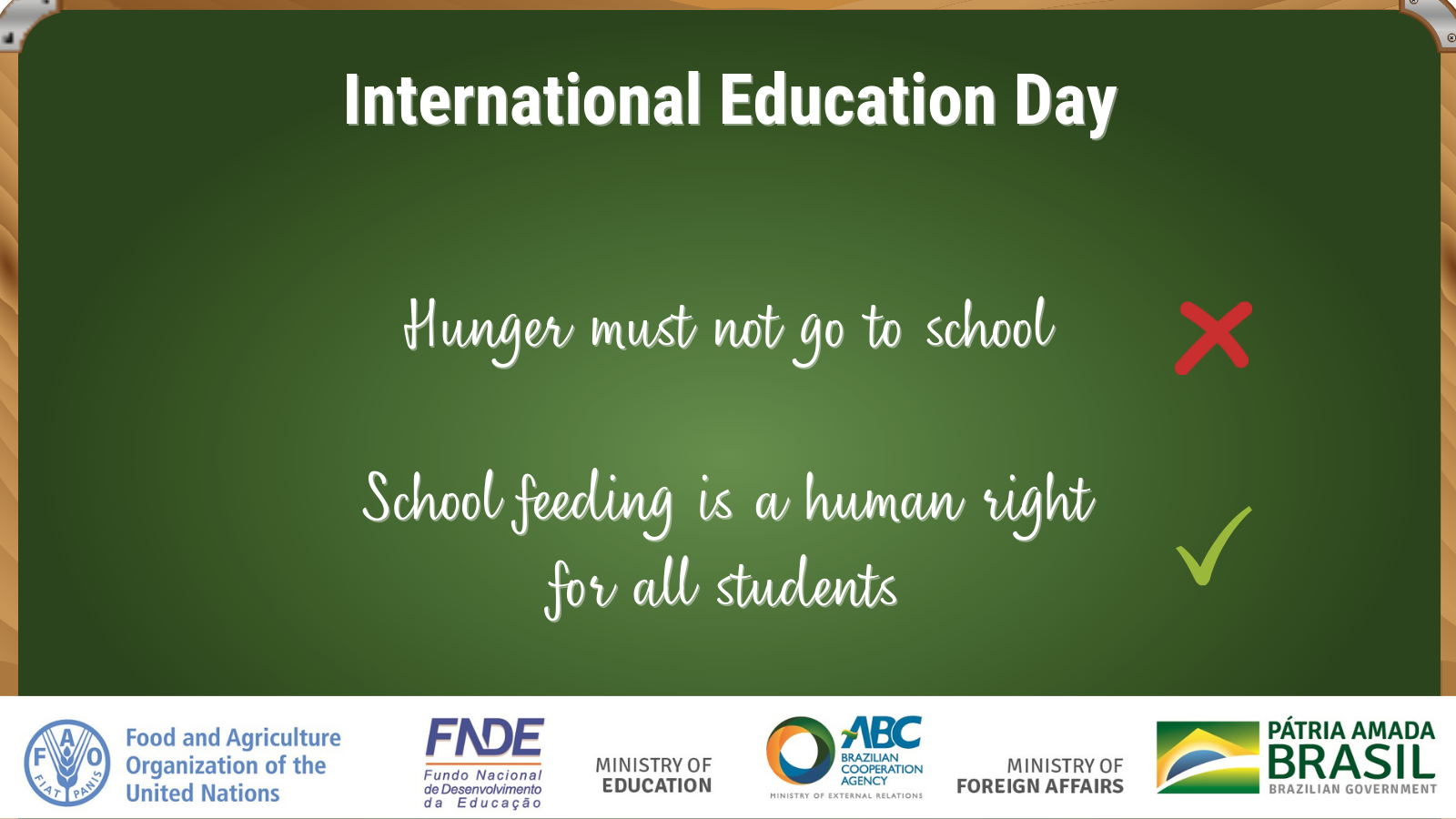The InternationaI Education Day is an opportunity for us to reflect about the importance of healthy food as a human right to students
Najla Veloso*
It is important to reflect on this International Day of Education that, after more than two years, we are still experiencing the challenges of the pandemic. According to United Nations data, school closures continue to impact 31 million people in different regions of the planet. If nothing is done, school dropout and the reduction of student permanence, which in many countries in our region were already challenges, could gain even greater proportions.
Therefore, I echo the words of the UN Secretary-General, António Guterres, on the importance of reinforcing the commitment to education, placing it at the center of the post-pandemic recovery efforts. To reaffirm this importance, I add another crucial item to the discussion: no one can learn with hunger. Several studies have already shown that the learning process and a better performance in school are directly associated with health and food security conditions.

It became even more evident with the pandemic that school feeding programs are very relevant and necessary public policies for social protection and human rights. In this scenario, the high potential for mobilization and organization of the school community was highlighted. In situations of vulnerability, social distancing and many difficulties, it was possible to provide emergency responses to the community because there was a previous articulation of the actors involved in school feeding. And there were not a few children, teenagers and young people who found their main or only meal of the day in the food offered by the school, in the kits distributed to families. We have heard this in the numerous dialogues with countries and in direct contact with colleagues from neighboring countries, in the most different latitudes.
We know that schools are places capable of transforming scenarios, realities and cultures. And that education is the most powerful tool in promoting new perspectives and possibilities for most populations. The school is the space where students can discover new paths and dream of a better future for themselves and their families. With the inclusive school feeding policy, the school has also become a space where thousands of farmers can trade with the state, through public procurement, and offer healthy fruits, vegetables, milk, eggs and others.
This food has added value because it is produced by the hands of those who live in the region, who see their sons, daughters, granddaughters and grandchildren being fed with their effort. Undoubtedly, it is a win-win policy, in which rural producers will have a guaranteed market and students will receive fresh, healthy and adequate food.
Cooperation
The work of the Brazil-FAO International Cooperation in school feeding, carried out by the National Fund for Educational Development (FNDE/MEC), the Brazilian Cooperation Agency (ABC/MRE) and the Food and Agriculture Organization (FAO) has been supporting Latin American and Caribbean countries over the last thirteen years to consolidate and enhance school feeding policies, increasing their reach, ensuring their continuity, defining budgets and structuring legal frameworks. In a nutshell, promoting such a transversal and far-reaching policy and benefiting more students from more than 30 countries in the region.
UN data indicate that 388 million students from five continents can find in the school feeding policy the guarantee of their Human Right to Adequate Food during the period they are in school. This is a lot, mainly combined with food and nutrition education actions, with a direct impact on the food culture of this and future generations.
On the International Education Day, we face a global challenge echoing in all countries: the need to guarantee conditions for everyone to fight, on equal terms, for a better quality of life. Without doubts, defending the delivery of healthy food at school for all students, with the implementation of educational activities, and with public purchase of local products, means defending the quality of education and life for students. It means defending a better and healthier future for this and future generations. Consolidating sustainable policies that effectively reach our students is part of our noblest tasks in rebuilding education, the economy and the lives of our people. Decidedly, the education we want goes hand in hand with food at school.
Najla Veloso is the regional coordinator of the Brazil-FAO Cooperation School Feeding Program



